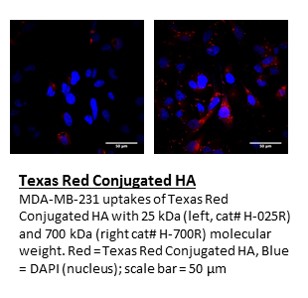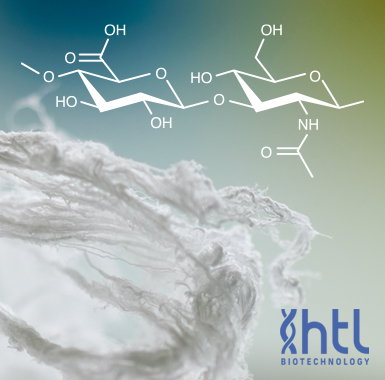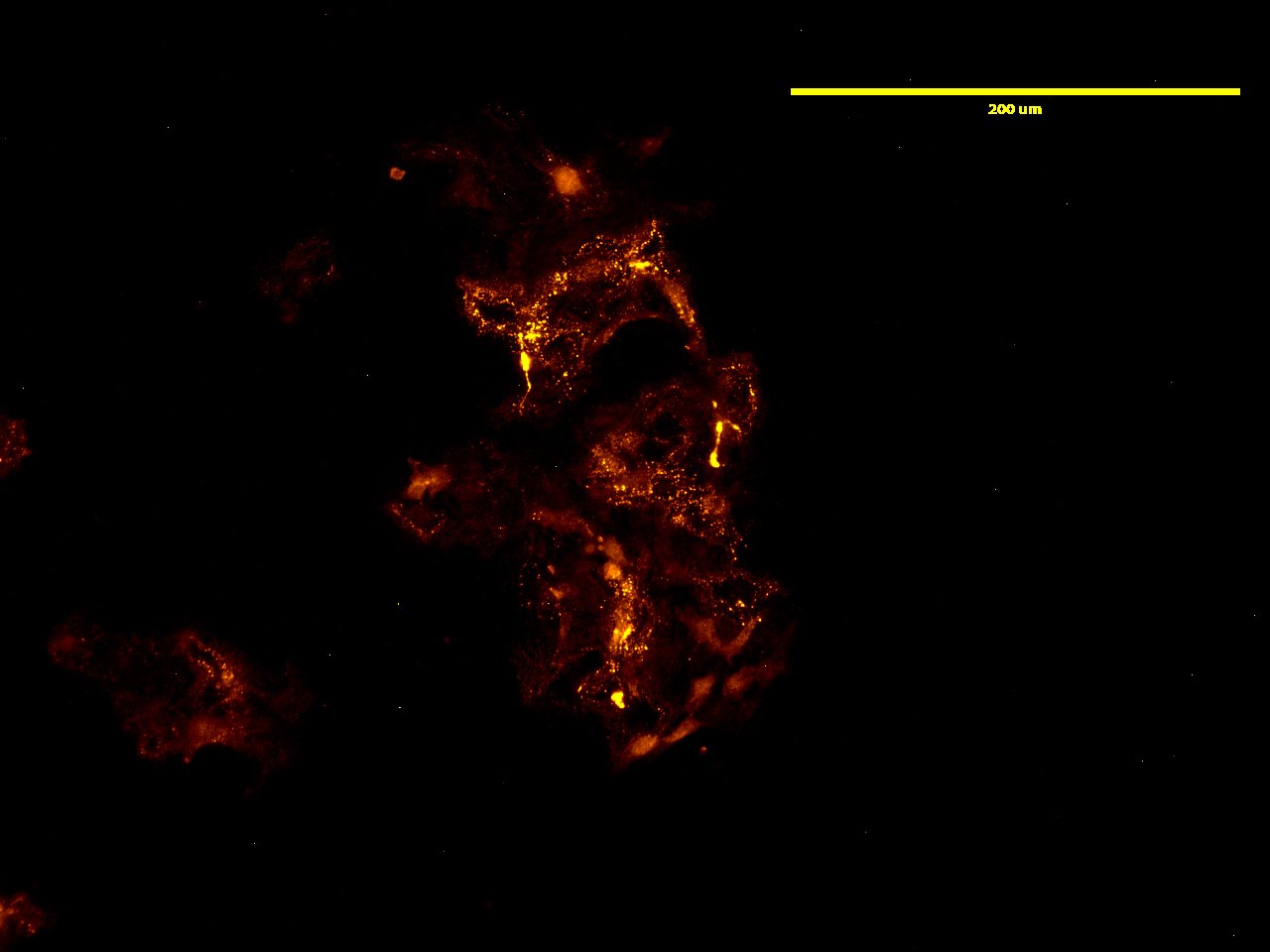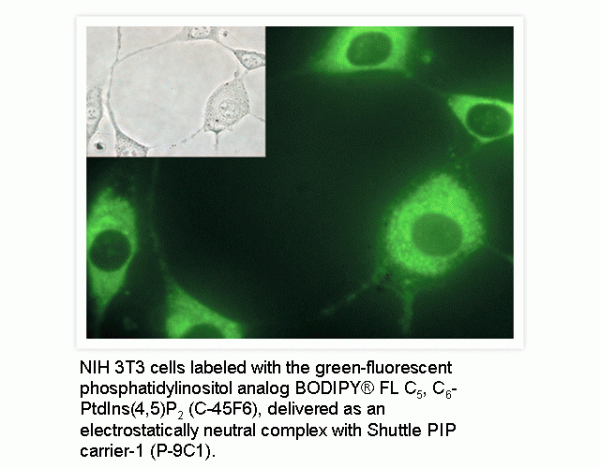HA30-Texas Red is made up of hyaluronic acid labeled with the red fluorophore Texas Red
Average MW: 20-30 kDa
Degree of Substitution: 0.5-2.0 labels per polymer chain
Hyaluronic acid (HA) is a high molecular weight anionic polysaccharide (1,000-10,000 kD) composed of repeating disaccharides and is one of several glycosaminoglycan components of the extracellular matrix of connective tissue. Free HA is taken up by the liver where it is degraded and recycled. Many chronic liver diseases, including infection (hepatitis B or C), toxicity (alcohol and drugs), genetic (hemochromatosis), autoimmunity, and malignancy, result in liver inflammation which can progress to liver fibrosis and cirrhosis; causing impairment of liver function and resulting in a rapid increase in circulating HA levels. Data indicates a relationship between HA levels, local inflammation and severity of disease. Recent publications have also shown that HA levels in urine are indicative of bladder cancer, that HA levels are directly correlated to liver disease, and suggests enhanced breakdown of HA in the lungs of patients with chronic obstructive pulmonary disease. In addition, serum levels of HA have been found to be elevated in patients with rheumatoid arthritis.




